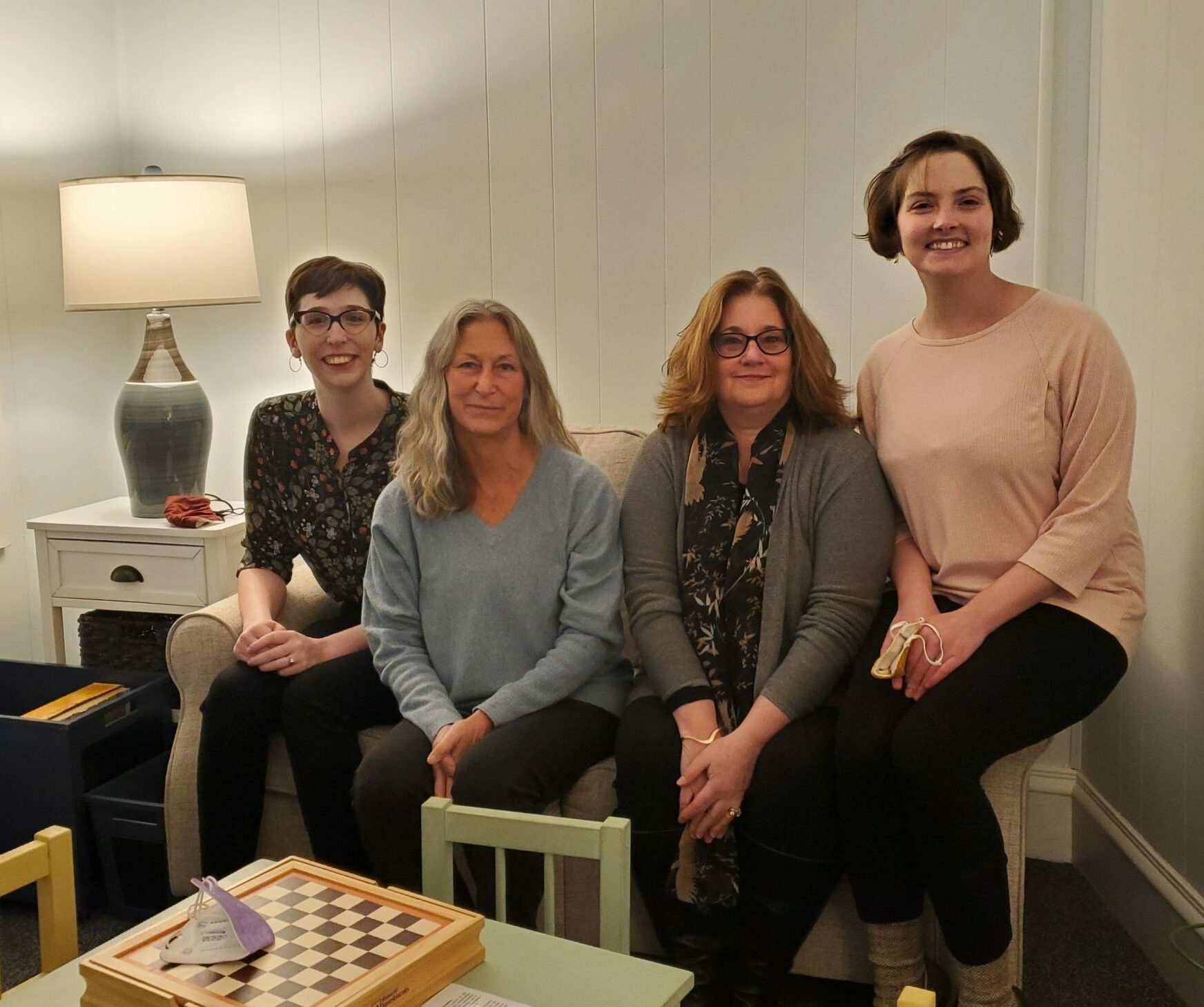Multi-Disciplinary Interview and Training Center (MITC) at WISE
“What if people actually felt heard by the criminal legal system? What if juries and judges understood the terror, betrayal and deep harm? Would that make things different? We thought it would.” Abby Tassel, Director of the Multi-Disciplinary Interview and Training Center (MITC) at WISE

From left to right: Alycia Chen, MITC Coordinator, Abby Tassel, MITC Director, Peggy O’Neil, Executive Director & Shannon Smith, MITC Coordinator
When a survivor of domestic or sexual violence arrives for a forensic interview at WISE’s MITC office, they walk into a space designed for comfort: beautiful and simple décor, a comfortable chair, a cup of tea, a nourishing snack. If they wish, an advocate accompanies them. The interviewer does not rush. It’s ok to take a break whenever a break is needed.
WISE’s MITC interviewers draw on all that has been learned about neuroscience and traumatic memory. “The way memory works that when one thing is recalled, it can link to other memories,” explains Abby. Sensory prompts can allow people to remember aspects of their experience that might otherwise not be accessible. Once memory is accessed, details often emerge over hours, days or weeks. MITC interviewers follow up with survivors and welcome people to be in touch if they have more information to share. As Abby explains, “It’s normal to remember more – or have difficulty placing events in chronological order – and it doesn’t mean that they’re making it up.”
Survivors report that the experience of a MITC interview is in stark contrast to what many have experienced with traditional forensic interviews: being asked to recount the “who, what, where, why, when and how” of a specific event, out of context. WISE advocates hear from survivors that cases rarely produce the results they had hoped for and the experience can cause additional harm.
“This program elevates the decades of experience of survivor centered and trauma-informed advocacy,” explains WISE Executive Director Peggy O’Neil. “There is so much great training that is not changing practice or outcomes. MITC is changing outcomes.” Law enforcement and prosecution partners appreciate MITC’s work, reporting that the interviews yield detailed information that allows for more effective prosecution.
For Abby and her colleagues, the most important measure of success is survivors’ feeling heard and respected, and that their experiences matter and are acknowledged and honored. One survivor shared that they felt “totally comfortable” and another expressed that the process “was so healing.” Another survivor reflected that whatever the legal outcome, in some important way “I got my power back when I did this. I actually felt better after the interview.”
For 50 years, WISE has supported people impacted by sexual and domestic violence in the Upper Valley of Vermont and New Hampshire. The Multi-Disciplinary Interview and Training Center at WISE is an innovative experiment designed to improve outcomes for survivors within the criminal legal system. WISE’s three-pronged approach provides forensic interviews, develops a cohort of experts ready to testify in legal cases across Vermont, and works with law enforcement partners to make responses more effective. WISE’s MITC Interviewers are specially trained in Forensic Experiential Trauma Interviewing (FETI). To learn more about WISE’s MITC project or their May 2022 FETI training, contact interviews@wiseuv.org.
